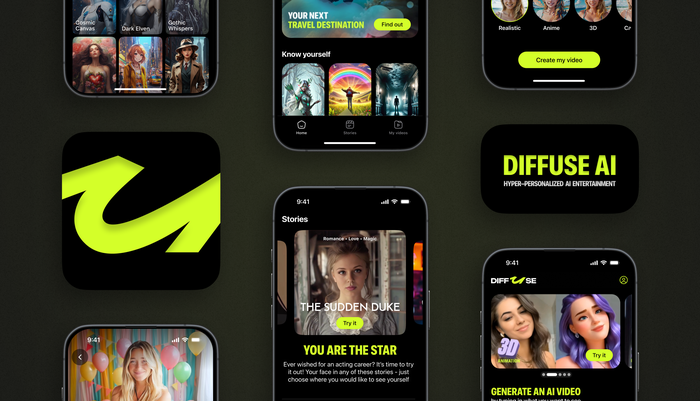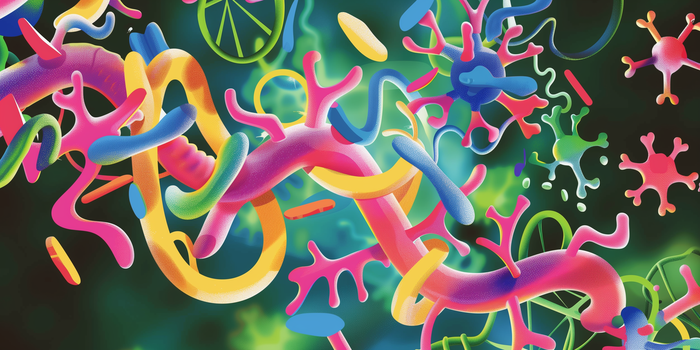How Bayer is transforming healthcare through responsible AI adoption

Matt A.V. Chaban
Senior Editor, Transform
Whether helping radiologists spot diseases or improving handoffs between caregivers, Bayer is looking for opportunities across the medical environment to improve outcomes with AI.
As a global leader in healthcare for more than 160 years, Bayer has for generations devoted significant resources to leveraging cutting-edge technologies. Bayer’s goal is accelerating drug discovery and the development of new technologies to improve the experiences of patients around the globe.
It should come as no surprise that artificial intelligence is now a relevant part of Bayer’s innovation equation.
Markus Blank, the head of applied imaging, innovation, and data enablement at Bayer, sat down with Transform to discuss how the company explores the utilization of AI to extract insights, draft documents, and fast-track the development of potentially life-saving medicines and medical devices.
The conversation provides an in-depth look at Bayer's exploration of generative AI across research, regulatory documentation, and more. It highlights the immense promise of human-AI collaboration in the pharmaceutical industry to automate tedious tasks so experts can focus on high-impact treatment initiatives. Read on to learn how Bayer and Google Cloud are working together to transform patient care worldwide through responsible AI adoption.
Can you discuss some of the principles Bayer aims to utilize technologies like AI?
Markus Blank: Bayer’s guiding star is “Health for all. Hunger for None,” and for us, that means staying on the cutting edge of technological developments in the medical industry. We’ve been using AI throughout our value chain for the past few years to develop new medicines and build new digital products. With predictive analytics and the responsible use of artificial intelligence, we can process vast quantities of generated patients data in a secure and compliant way to uncover insights into which treatments are most effective or why some people are predisposed to certain diseases.
More specifically, we’ve been building sophisticated AI tools to make medical imaging faster, better, and more cost-effective. We’re using generative AI to accelerate medical solutions that can be critical in aiding diagnostics.
Could you elaborate on Bayer's use of synthetic data to train AI models? Why is this capability important?
Synthetic data is crucial for developing robust AI models, especially in healthcare, where data availability is often scarce. At Bayer, we create synthetic data using generative AI and large models to expand and augment our datasets. This allows us to train models on more extensive and diverse data than we could collect through traditional means.
Having varied, quality data is crucial in building AI that generalizes well and provides reliable insights across different patient populations. Synthetic data helps address this need while also preserving patient privacy. Synthetic data can also be used to explore new, highly specialized models for new approaches in diagnosing medical problems.

We can generate entirely new fictional patient profiles instead of using actual sensitive records. Furthermore, when tackling rare or new diseases, synthetic data closes the data gap and accelerates work on discovering cures because you can generate data as needed. We use synthetic data to develop new, highly specialized models for diagnosing diagnostic problems.
Overall, synthetic data unlocks more advanced, equitable AI solutions that have the potential to enhance diagnostic capabilities, accelerate drug creation, and enable personalized intervention strategies. It is a vital capability that allows us to progress significant efforts around early disease detection and prevention. We believe it will significantly benefit patients worldwide as we translate these models into clinical practice.
How is Bayer leveraging AI to accelerate research and document creation?
At Bayer, we utilize generative AI models to assist with research efforts like hypothesis generation and document creation for regulatory documentation. These efforts allow us to accelerate timelines while maintaining accuracy and compliance. Specifically, AI can rapidly analyze research data to identify potential new directions or insights. It can also assist with drafting initial versions of documents, which our experts then review, edit where needed, and finalize. This human-AI collaboration improves the efficiency of these complex processes supporting us to bring innovative medicines to patients faster.
How can generative AI augment human potential and increase efficiency and accuracy?
We believe AI can significantly augment human capabilities and potential. Combining AI with human expertise can increase efficiency, improve accuracy, and ultimately enhance outcomes across our organization.
For example, in research, we can already leverage AI to rapidly analyze data, identify new insights, and assist in drafting documents. This allows Bayer’s scientists to spend more time pursuing novel ideas rather than getting bogged down in manual analyses. The reclamation of resources these automations bring can lead to more impactful discoveries that can transform patients' lives.
We also utilize AI to extract essential information from lengthy documents and industry reports, freeing our business teams to focus on higher-level strategy. With AI handling the initial document review and information consolidation, our experts can devote their energy to critical thinking and decision-making.
Overall, AI may allow us to automate lower-level tasks so our specialized teams can focus their talents on more creative, strategic initiatives that drive innovation. It makes our people even more curious, passionate, and impactful. By combining human creativity with AI's computational power, Bayer aims to accelerate the development of breakthrough medicines and technologies.
Why did Bayer choose Google Cloud as its cloud provider, especially considering the stringent regulatory requirements in the pharmaceutical industry?
Bayer and Google have built a great relationship over the past four years, spanning a wide range of technologies and efforts. Google supports our vision with expertise and extensive cloud services like Vertex AI.
When selecting our cloud provider, regulatory compliance was a top priority for Bayer due to the sensitive nature of our data and AI models. Google Cloud provides a highly secure infrastructure that supports compliance of the regulatory standards for the pharmaceutical industry, such as GxP and HIPAA.
Bayer's innovative use of Google Cloud's generative AI demonstrates the immense potential of human-AI collaboration to accelerate medical breakthroughs. By combining AI's efficiency in analyzing data and drafting documents with human creativity and expertise, Bayer is fast-tracking the development of life-transforming medicines and advancing personalized care.
Bayer and Google Cloud's partnership highlights how strategically implemented AI can benefit patients worldwide. While there is still more work to do, the future looks bright. Through responsible AI adoption and a commitment to equitable access, more inclusive and personalized healthcare is on the horizon.



